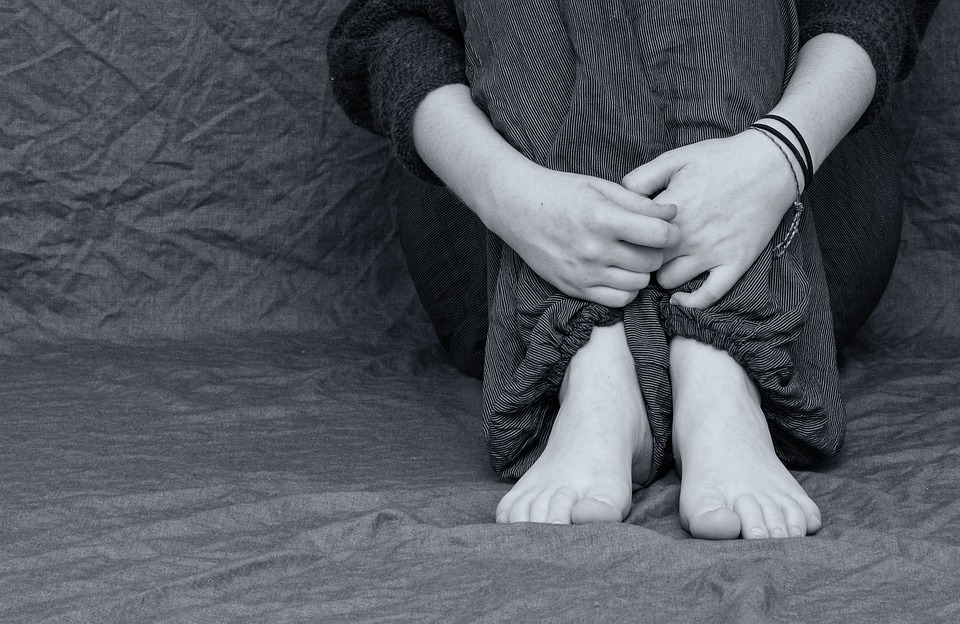Abusive Relationships – Women’s Biggest dilemma
Abusive Relationships are characterized as disrespectful and violent behaviors, practiced to have control over a partner. It can be financial, physical, mental, verbal, emotional, or cultural abuse. An Abusive Relationship includes frequent assaults, isolation, and frightening which intensifies with time.
Abusive Relationships – Facts based on statistical data

- According to the statistical data of the National Domestic Violence Hotline, Women ages 18 to 34 had frequently encountered the highest rates of violence by an intimate partner in the US.
- From the year 1994 to 2010, 4 out of 5 women victims encountered violence by an intimate partner.
- More than 51.1% of women victims reported being raped by an intimate partner and 40.8% of women victims by an acquaintance.
- 66.2% of women were victims of stalking by a present or former intimate partner.
- According to Statista survey results, while surveying, 25 % of women participants of the Ipsos survey considered domestic abuse as the most critical problem women and girls encounter in India.
- Every third woman of rural and urban areas in India encounters domestic violence, physical abuse, or sexual harassment.
- According to UN Women Global Database on Violence against Women, 29 % of women in India face a lifetime of physical violence or sexual intimate partner violence.
A true story of abusive relationships
Zara (name changed), a childhood friend of mine, always wanted to live a carefree life like a bird. But, the family she comes from, never let this happen. She belonged to a conservative family, who believed that at a certain age a girl should get married. Her family was very society-centered. They think of society first, like log kya kahenge? (what will people say?). Her parents never gave her freedom of choice. She was also a victim of domestic violence by her alcoholic father.
After high school, her parents started finding an alliance for her. She wanted to study further, but her desires were nothing in front of her parent’s wish. Assuming that she will get out of the life full of family torture, she decided to fulfill her parent’s wish. Eventually, she got married and gave birth to a girl child after one year. It was never a happy marriage, but she tried every bit of her to please her husband and in-laws. Her husband was sharp-tongued, aggressive, and controlling in nature. Zara lived in this unhappy marriage for almost three years and then decided to give up.
Once Zara’s husband assaulted her and threw her out of his house. She immediately called her mother, but it was in vain. Her mother told her to not return to their place, but with the help of her friends, Zara managed to get into her parent’s home. She suffered every bit of torture and struggled hard to change her life. It was never easy for her. Her parents isolated her, abused her also kept her hungry for days. Her daughter was her only strength. A woman can do anything if she is determined and knows her strength.
Time heals everything. Zara has changed her life, she runs a playschool and lives at her friend’s place as a PG. She is a proud single mother and a self-made woman now. A true inspiration for women who are in this kind of situation. This was the story of Zara, but do you know there are a lot many women who are afraid to leave such relationships? Why do they stay in abusive relationships? Because leaving can be equally difficult.
Reasons why women stay in Abusive Relationships

Many circumstances affect a person’s decision of staying in an unhealthy and abusive relationship. Here we have talked over some common reasons, why some women stay in toxic and abusive relationships.
1. What will people say or think?
A woman may feel afraid of what people will say if she leaves her abusive partner. She often remains worried about the consequences she may face after she decides to end the relationship. The embarrassment makes it difficult for her to accept that she has been abused by her partner. She may feel that she may be blamed and judged by her family and friends. Some women also get influenced by traditional and cultural reasons and prefer to stay in an abusive relationship. They live in constant fear of bringing shame to the family and so they continue living in their abusive relationships.
2. Love for her partner
Often the victim feels love and compassion for her partner. They both have a family to nurture and look after, so they may not want to end their relationship completely. She hopes that her love and support might bring back her partner to being the person he used to be. In some cases, after every abusive dispute, the abuser apologizes and promises to never do it again, but this becomes a pattern for an abuser.
3. Lack of Financial Stability
When a woman is dependent on her partner for finances and resources, she can be a victim of financial abuse. Without money, she can’t reach out to the modes to get out of the place. In that case, she feels helpless in leaving the abusive relationship with her partner.
4. Assuming that things will change eventually
Assuming that if she sticks by, it might change for the better. Often, she starts feeling guilty and also blames herself for her partner’s abusive behavior. She believes her love for her partner will change her partner’s behavior. Besides, dependency and children, are often the main reasons that she stays in abusive relationships.
5. Leaving is dangerous for her
Sometimes, leaving abusive relationships can also turn life-threatening. After breakup woman is more vulnerable to physical and mental harassment by her abusive partner. This harassment can get more intense than at any other time of her relationship. The best way to guard yourself in this situation is by devising a personal safety plan using women’s safety apps.
How to get out of an Abusive Relationship?

Leaving an abusive relationship can be difficult, but no one should live in fear and feel unsafe. So, if you are in an unhealthy and violent relationship then you might think of leaving your relationship. You cannot do it all at once, rather create a safety plan before you are ready to leave. Having a safety plan will ensure you get out of it safely. Before leaving consider the following things,
- First, pick a person you trust with whom you can talk about you leaving your abusive relationship and try to get help from them.
- Then decide whether it is the right time to leave your relationship?
- Decide where you are heading after ending your relationship?
- Discuss how to survive when you decide to leave having little or no money?
- Then ask yourself how you can leave keeping yourself safe?
Getting out of a depressing and ambushed relationship can be difficult after being continually harassed and threatened by an abusive partner. No matter, how worthless the other person has made you feel, you deserve to be happy and there is always a way to a better life.
Instead of isolating yourself from your social circle and friends, reconnect with them. If you are still experiencing abuse post-breakup, talk to your family or friend. Besides, get the guidance of the police until all legal formalities are done. Be honest with others and yourself. Talk to a psychologist if needed because the scar of an abusive relationship will not disappear overnight or the moment you leave.
Cut all the ties with the abuser post-break up. It will lessen the risk of getting back into a relationship that was not worthy. Walk around your favorite places, pick a hobby, read self-help or personal development books, and do things that make you feel happy. Find yourself which you lost during your abusive relationship. Surround yourself with motivating people. Vent out all your negative emotions instead of holding them and hurting yourself.
As you move forward in your life, pay attention to your thoughts. Clear out all the hurtful occurrences from your memories. Acquire a mindful life, practice meditation to stay calm in every situation life throws at you.
If you know someone who has been a victim of an abusive relationship, simply reaching out to them and offering a sympathetic ear without being judgemental and letting them know you are there, is sometimes enough to overcome the bad experiences of life.


